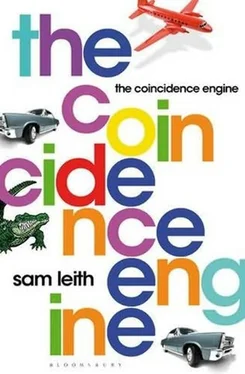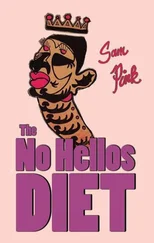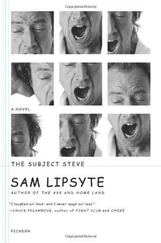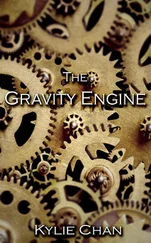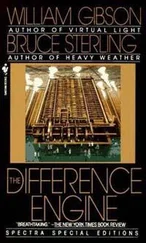Alex’s hands shot up level with his head.
‘Sir,’ he said. ‘I’m sorry. Whatever it is, I’m sorry. I don’t know what you think I’ve done, but I – I think you’ve got the wrong person, sincerely, sir.’ The whiskey hadn’t entirely worn off. Alex struggled to pronounce ‘sincerely, sir’.
‘You’re Alex Smart?’
‘Yes. I mean no. Sorry. Yes. Sorry. I didn’t mean to lie. I mean. I got confused.’ Alex was breathing fast and shallow. Terror made everything very clear to him. He could see Sherman’s sandy hair and hard little face – or, at least, he was aware of them. All he literally saw was the little black hole in the end of the gun.
He talked to Sherman and looked at the gun.
‘I’m Alex Smart, but you must mean a different Alex Smart, I mean. There’s been some sort of mix-up. I’m a student.’
‘Are you?’ said Sherman. ‘That’s nice for you.’
‘I’m at Cambridge. I do maths. I don’t do…’ He trailed off helplessly. He didn’t know what it was he didn’t do, or – rather – how to articulate the mass of things that people presumably did do that led to people pointing guns at them, but that were so far outside the sphere of all the things Alex did as to occupy a separate category of existence.
‘Cambridge, eh? Mummy and Daddy must be very proud of you,’ said Sherman, in a not altogether friendly way. ‘But I’m afraid I couldn’t give two shits what you do or don’t do. Not two shits. You’ve got this machine. It’s not your property. And I want it back.’
Alex was even more baffled. What machine?
‘I don’t know, sir. Please. I don’t know what you’re talking about -’
I don’t know what you’re talking about , Alex thought. I actually said that. That’s what people always say in films, and they are always lying, and something very horrible always happens to them.
‘- I mean, sorry, I know how that sounds, I really don’t know, I promise I don’t. I don’t have any machines. Please. You can search me and everything. Just please don’t -’ and he couldn’t bring himself to utter the words ‘shoot’ and ‘me’ out of the fear that it might put an idea into the man’s head which would not otherwise have occurred to him.
Overhead Sherman could hear the sound of a helicopter. It flickered through his head that he should run – that that might be MIC come to disavow him, or the FBI come to take him in – and then he put the thought out of his head and concentrated on killing the young man who he believed had killed his friend.
Sherman hadn’t liked Davidoff, not that much. But a point of principle was, as he saw it, at stake. Davidoff had been in his regiment. He had been beside Davidoff when they were digging into a position in the Iraqi desert under fire, and discovering they were on top of a mass grave had given each of the sandbags they filled a name: Abdul, Mustapha, Mohammed. They had spent a night dug into that position. This soggy little prick knew nothing of that. And the only thing that would get Sherman out of the hole he was in with his employers and with the law was in this lad’s possession.
‘Please,’ said Alex.
‘No,’ said Sherman. He took a step closer to Alex, who had raised his hands, palms out, like a hostage in a black-and-white film. ‘Mate, the way I see it is this. You killed my friend. You have this coincidence machine. And this is nothing personal but I’m fed the fuck up asking nicely.’
Sherman had at no point asked nicely, it occurred to him fleetingly. But he kept the gun level. This was not personal. No. It was personal. He gestured with it for Alex to move – down the fence towards the unlit corner of the site, further into the shadow, further away from the human noise of the street.
‘I – I don’t know what you’re talking about,’ said Alex. ‘I’ve got money. Please. I can help you. Please.’
It was as Alex went, stumbling sideways down the fence line, that Sherman realised the boy had suffered a failure of imagination. He didn’t realise that Sherman meant to kill him – or if he did realise it he was not allowing himself to believe it. He thought he belonged to a different story. His was a world in which people didn’t kill each other, except in foreign countries and on television. At some level, this little twat thought that one day he was going to be telling people about this.
It made Sherman hate him – but also envy him. This wet, spoilt, selfish, privileged little wanker. Sherman was not only going to kill Alex, he realised then, but he wanted to.
If he’d kept his eyes on Alex, Sherman would have seen that realisation communicate itself to the young man he was about to kill. He’d have seen a face, streaked with drying tears, turn to fear and bewilderment. Alex in that instant knew, for the first time, what it was to be properly hated; to be hated to death.
Sherman would also have seen Alex’s eyes, an instant later, attempt to focus over his shoulder on a pudgy woman in early middle age emerging from the far corner of the yard, followed by a tall man with grey hair. The woman had a gun in her hand.
But Sherman saw none of these things because he was disconcerted by a sudden movement in the corner of his field of vision. Distracted for an instant, he looked down. There was a faint, blurred rectangular shadow on the pavement around him, about the size of a Volvo estate. The shadow was getting crisper and smaller, Sherman thought. And that was the last thing Sherman thought.
Sherman was standing there and then Sherman was gone – vaporised, obliterated.
At first nobody in the yard could process the sound. Offensively abrupt and shatteringly loud, it had a quality of being at once percussive and muffled, like a fat person’s thigh bone snapping clean without breaking the skin.
Bree had been aware of something flickering in the upper corner of her field of vision and then, with a tremendous WHUMPH! and a tangible dislocation of the air, what she had been looking at had become without preamble what she now was looking at, and it made no sense.
The man with the gun was gone, and where he had been was an oblong block on the ground at the centre of a great asterisk of red. There was black stone and polished wood of some sort dashed to matches, and a spreading stain of bright blood. Down both long sides of the oblong, great fat pillars of wood stuck up skywards. Two, at the end that took the impact, had snapped off and shivered. One of them bounced and rolled away over the uneven ground. Meanwhile, fugitive pieces of what used to be Sherman were crumbed in the dust of the yard like meat scraps in the sawdust of a butcher’s floor.
Alex’s mouth opened and closed. His hands remained in the air.
Bree looked at the scene. The impact had sent fine brown dust in every direction, and Bree’s next breath caused her to cough. A torn skein of green felt, poking out from under the edge of the table, was soaking black with the blood.
Bree was the first person to talk, and she said: ‘The fuck ?’
Jones, standing slightly further away, said: ‘Snooker table.’
Jones was right. What had landed on Sherman was a brand-new, full-sized slate-bed snooker table. It had cost twenty thousand dollars and weighed something approaching a ton and a half. It had been destined for pride of place in a newly built ‘Sherlock Holmes’ suite at the MGM hotel and casino, whither the helicopter that was carrying it had been bound before its cargo had parted company with its bindings.
All this took approximately three-quarters of a second, and that fragment of time was crowned by an instant of tranquil bewilderment. The dust hung in the air, and there was silence.
Alex’s hands remained in the air. Bree gaped. Then Bree looked down and saw a bit of Sherman on her boot, and as she was bending over to be sick the stillness was broken by a sound like the crack of a pistol. Something powered into the centre of the oblong like a little howitzer and shattered into dust. Then another crack, equally loud. Then another – something, this time, kicking off the oblong and skittering across the uneven surface of the yard, something round and red.
Читать дальше
